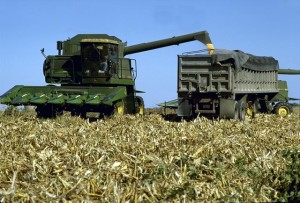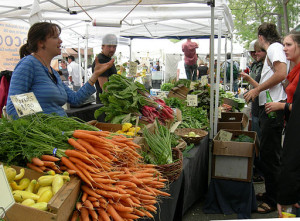
Government policies have led to an oversupply of corn, which has contributed to an obesity epidemic.
To understand our current food system, we first need to understand the influence of government policy. As Scott describes in Seeing Like a State, historically governments relied on plentiful food to feed their projects, from better housing and sanitation to wars and military forces. Unfortunately, policies subsidizing cheap and unhealthy food are fueling an obesity epidemic. Michael Pollan and others recently proposed replacing our outdated U.S. farm policy with a food policy that promotes ecological stewardship, rural communities, and good nutrition.
Technology cannot directly solve the policy problem, but information technology can help educate citizens about food. Online communities support those who want to learn to garden or raise chickens. Garden sensors such as Edyn help people get started gardening. People who know where their food comes from will demand better policies from their government.
Much of agricultural technology has focused on increasing yield and decreasing costs of commodity crops with little regard to the health of the land and people. With half of Iowa’s topsoil lost in the last century and a surge in childhood obesity fed by cheap corn, we must look beyond short-term yield and price and focus on the broader long-term impact to society and the environment. Many farmers would like to use more sustainable agricultural practices, but feel consumers are unwilling to pay the premium for higher quality and more responsibly farmed food.

The number of farmer’s markets frow from about 5,000 in 2008 to 8,144 in 2013. Photo Credit: Joe Mabel [GFDL or CC-BY-SA-3.0], via Wikimedia Commons
To paraphrase Costa in The Watchman’s Rattle, we need to attack a complex problem from many different directions to have any hope of success. Technology alone cannot remake our food system but it must be part of the solution. By developing better software for farmers, gardeners, and those with backyard chickens, I hope to make a positive impact. I am encouraged by the tremendous growth in investment in agricultural technology. With global food demand predicted to increase 50% by 2050 and climate change underway, we will need all the help we can get.




Recent Comments